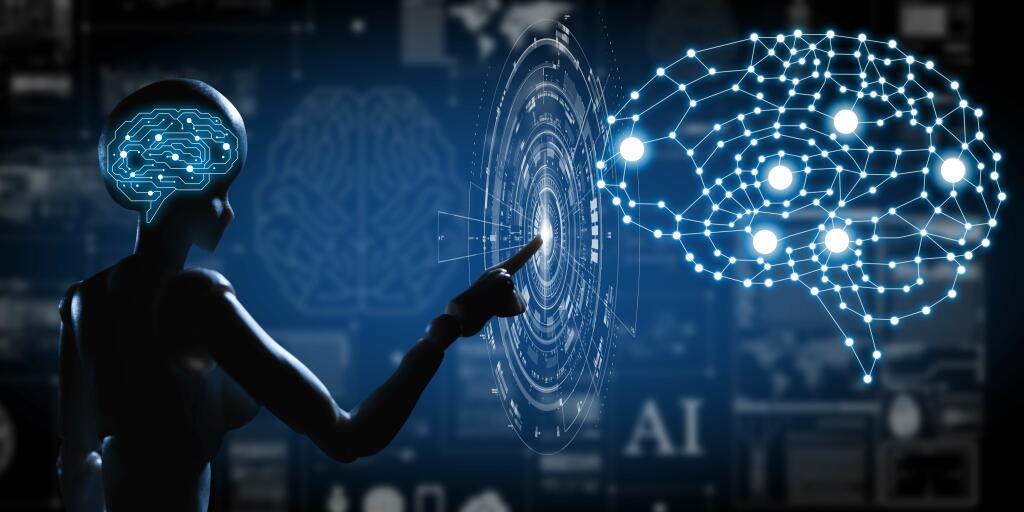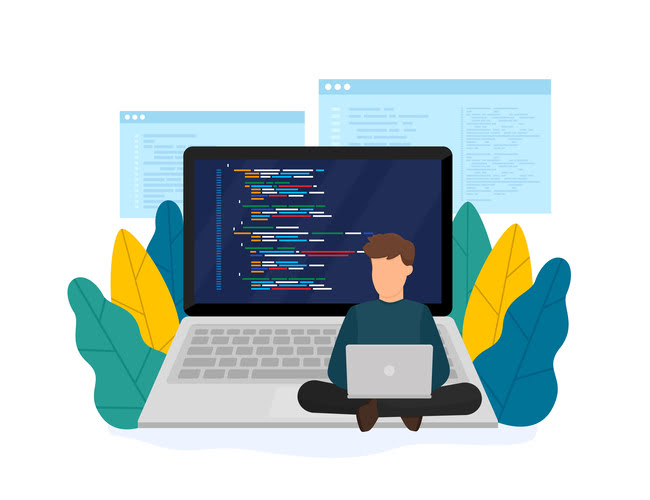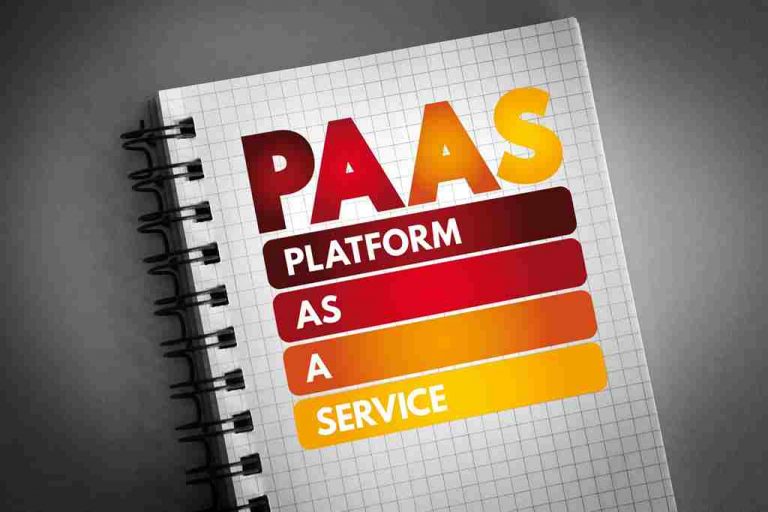Manufacturing Execution Systems (MES) and Internet of Things (IoT) systems generate a massive quantity of knowledge. AI may help in integrating this knowledge, providing a comprehensive view of the manufacturing course of. In the digital age, managing and accessing data is crucial for efficient operations. One of the ways AI is being utilized in manufacturing is to digitize recordsdata, reducing the reliance on physical paperwork and making data more easily accessible.

Waste prevention measures including these aimed at decreasing ocean plastic litter and the creation of environmentally pleasant items and manufacturing processes are two extra. Furthermore, manufacturing organizations must discover a steadiness between operational effectivity and the dangers to company assets and folks. Improvements in video analytics and building administration methods have allowed businesses to leverage AI and analytics to make their workplaces safer for employees. Artificial intelligence (AI) in provide chain and logistics has nice promise for facilitating real-time forecast updates and improved decision-making within the manufacturing business.
What Is The Ai Development Within The Manufacturing Industry?
AI can personalize learning paths for every employee based on knowledge from training reviews, skill matrices, or efficiency knowledge. The techniques can determine talent gaps and deliver targeted training modules tailor-made to the individual. Furthermore, AI can continuously analyze performance data to identify talent gaps and suggest focused coaching modules, making certain staff stay up to date with the latest trade practices and technologies. To adapt to this shift, producers might want to invest in reskilling and upskilling their workforce to bridge the talent gap. On one hand, workers will need to understand how to interpret data generated by AI techniques to identify trends and make informed selections.
Ensuring the standard of products and confirming that they meet the established standards and criteria can decide the success of an organization. AI might help to evaluate the quality of merchandise and label them if they are match for distribution or not. The way forward for AI in manufacturing additionally has measures to reinforce the safety of manufacturing unit employees.
The Future Of Ai In Manufacturing: Predictions And Implications
Robotics combine AI with mechanical engineering to create machines (robots) that may carry out duties autonomously or with minimal human intervention. This includes industrial robots utilized in manufacturing, in addition to social robots designed for human interplay. It automates analytical mannequin building by enabling techniques to learn from information, establish patterns, and make choices. Some hook up with existing techniques to parse textual data, while some methods rely on visuals to improve the manufacturing course of.

From predictive upkeep and high quality management to provide chain optimization and autonomous manufacturing lines, AI is reshaping each facet of producing operations. “Industry four.zero,” the movement towards more automation in manufacturing crops and the massive creation and switch of information, depends closely on synthetic intelligence. Artificial intelligence (AI) and machine learning (ML) are important to assist businesses make sense of the massive volumes of knowledge produced by industrial tools. Saving cash, making the workplace safer, and streamlining the availability chain are just a few of the numerous potential outcomes of making use of AI to this info.
For extra insights on this, check with our article on ai for demand forecasting in manufacturing and ai for useful resource allocation in manufacturing. The two companies have joined forces to boost factory output with the use of computer vision, cloud analytics, and AI algorithms. The Japanese automation agency Fanuc also employs robots with artificial intelligence to run its manufacturing lines. The robots can make essential parts for CNC and motors, maintain the manufacturing facility floor’s gear operating nonstop, and regulate every little thing at all times.
Some of those processes add value, while others protect the product’s value by making certain it’s up to standard. It’s estimated that by 2032, the manufacturing’s AI market is expected to develop from $5 million to $68.three million, representing a outstanding progress. The transformative potential of integrating Gen AI with digital twins indicates how this mix can propel producers from reactive to proactive modes of operation. “This shift may help organizations achieve larger effectivity, sustainability and resilience in the hyper-competitive and continually altering world market,” says Shukla.
Unleash The Facility Of Praxie: Data Integration For Manufacturing Excellence
People can be wanted solely to take care of the techniques the place a lot of the work could be carried out by robots eventually. But in the present conception, individuals still design and make choices, oversee manufacturing, and work in numerous line capabilities. AI is making possible much more exact manufacturing process design, as well as drawback diagnosis and resolution when defects crop up in the fabrication process, by using a digital twin. A digital twin is an exact virtual reproduction of the physical part, the machine tool, or the half being made. It’s an actual digital representation of the half and how it will behave if, for instance, a defect occurs. (All parts have defects; that’s why they fail.) AI is necessary for the appliance of a digital twin in manufacturing course of design and upkeep.
In such an surroundings, AI can substantially improve manufacturing processes through optimisation of auto transport and logistics operations. Through the analysis of past patterns, AI can predict visitors patterns, recommend optimal routes and even forecast future events. Companies are beginning to make use of web3 technologies to improve logistics and supply chain processes. Blockchain and smart contracts promise to increase information safety, traceability, and transparency while decreasing prices and administrative time. In the contemporary landscape of producing, a silent revolution is going down, driven by the integration of artificial intelligence (AI) into various processes. As factories turn out to be smarter and more interconnected, AI is poised to revolutionize the finest way manufacturers function.

The complexity of modern provide chains presents numerous challenges for producers. AI offers solutions by providing real-time insights into demand forecasting, stock administration, and logistics optimization. By analyzing knowledge from a number of sources, AI algorithms can determine inefficiencies and suggest optimal strategies for price discount and risk mitigation. Those models need to be trained to grasp what they’re seeing within the data—what could cause those issues, how to detect the causes, and what to do.
The Digital Manufacturing Facility Is The Way Ahead For Manufacturing
For example, within the meals manufacturing business, AI is used to spice up high quality assurance by automating inspections, verifying the safety of ingredients, and monitoring saved food merchandise. Artificial intelligence, or AI, refers to the simulation of human intelligence processes by machines, especially computer methods. This expertise entails learning (the acquisition of knowledge and guidelines for utilizing the information), reasoning (using rules to succeed in approximate or definite conclusions), and self-correction. In the context of manufacturing, AI can be utilized to automate advanced tasks, analyze huge quantities of data, and make real-time choices, among different purposes. In the future, businesses in sectors presently undergoing digital transformation are predicted to use AI-based companies. Important parts contributing to the enlargement of AI within the industrial market are the sector’s inherent resilience and the necessity for long-term solutions from businesses operating in it.
- Robots are rigid by design, however AI-enabled robotics that use sensors, data-driven computation, and extra can improve their capabilities.
- Key AI applied sciences utilized in manufacturing embody machine studying, deep studying, pure language processing, computer vision, and robotics.
- AI or Artificial Intelligence is slowly growing and in the past decade, it has grown exponentially.
- For instance, within the food manufacturing business, AI is used to spice up quality assurance by automating inspections, verifying the security of components, and monitoring saved food products.
- The graph has been taken from Google Cloud which explains the top three manufacturing sectors deploying AI.
These include the value of AI implementation, the necessity for expert personnel to manage AI techniques, and concerns about data privateness and security. Robots utilized in business, usually often known as industrial robots, are programmed to do repetitive duties mechanically, considerably decreasing the chance of human mistakes. Despite its transformative potential, AI integration in manufacturing faces challenges associated to information infrastructure, knowledge safety, standardization, and the digital skill gap. Addressing these challenges is essential for producers to unlock AI’s full benefits and keep competitive in an more and more digitized trade.
Ai For Knowledge Integration From Mes & Iot Methods
The expertise can also help with customs clearance, reducing the need for manual paperwork and rushing up the method. Manufacturing corporations can use digital twin simulations to test and validate new manufacturing techniques and systems before they are carried out within the bodily world, decreasing the chance of pricey errors https://www.globalcloudteam.com/ai-in-manufacturing-transforming-the-industry/. The multinational aerospace firm Airbus is using AR to overhaul its high quality control processes. Their group uses drones fitted with LIDAR sensors to conduct fly-around inspections, after which the drones transmit knowledge to human inspectors who look at the knowledge using tablets and AR glasses. Despite the potential advantages, the adoption of AI in manufacturing also presents a quantity of challenges.

The method forward is turning into clear, as is the range of situations for a way AI is used in manufacturing. AI in manufacturing is the intelligence of machines to perform humanlike tasks—responding to events internally and externally, even anticipating events—autonomously. The machines can detect a tool sporting out or something unexpected—maybe even one thing expected to happen—and they’ll react and work around the problem. Scaling an AI answer may require standardizing processes or knowledge codecs to make sure the AI capabilities persistently.
Trend 1: Synthetic Intelligence Is Being Used To Automate Manufacturing Processes
Any authorized analysis, legislative updates or other content material and links shouldn’t be construed as legal or skilled recommendation or an different to such recommendation. If you require legal or professional advice, kindly contact an legal professional or other appropriate professional advisor. The moral implications of AI in manufacturing extend beyond regulatory compliance. Manufacturers should grapple with questions of bias, equity, and transparency in AI algorithms.
By staying forward of the curve, manufacturers can leverage AI to drive efficiency, improve quality, and acquire a aggressive edge available within the market. As AI continues to reshape the manufacturing panorama, it’s crucial for producers to arrange for an AI-driven future. This entails investing in AI expertise, upskilling workers, and fostering a tradition of innovation. Businesses within the manufacturing sector may make use of cloud computing and AI to create and enhance 3D models.
Furthermore, AI-based machine imaginative and prescient is used for monitoring manufacturing and industrial environments. Machine vision makes use of the most recent AI technologies to permit industrial tools to see and analyze duties in good manufacturing, employee security, and quality control. At current, AI-enabled machine imaginative and prescient applied sciences substitute labor-intensive, inefficient operations for greater efficiency, reliability, and safety.
Engineers and builders also can use machine studying purposes to research prototyped and existing products for defects and recommend solutions for improvements. In this text, we’ll talk about the categories and applications of AI in manufacturing, the challenges of integrating AI into manufacturing processes, and the means ahead for manufacturing AI. When used in manufacturing, it could work along with ML to further improve high quality control whereas additionally detecting defects or out-of-place objects. Additionally, pc vision can be utilized to examine gadgets on a production line to make sure they adhere to quality requirements, adding an additional level of safety to manufacturing lines. “Digital twins have lengthy been recognized for his or her potential to revolutionize predictive upkeep and streamline processes,” says Shreyas Shukla, principal research director at Info-Tech Research Group. “When combined with generative AI, the chances for the manufacturing industry expand exponentially.